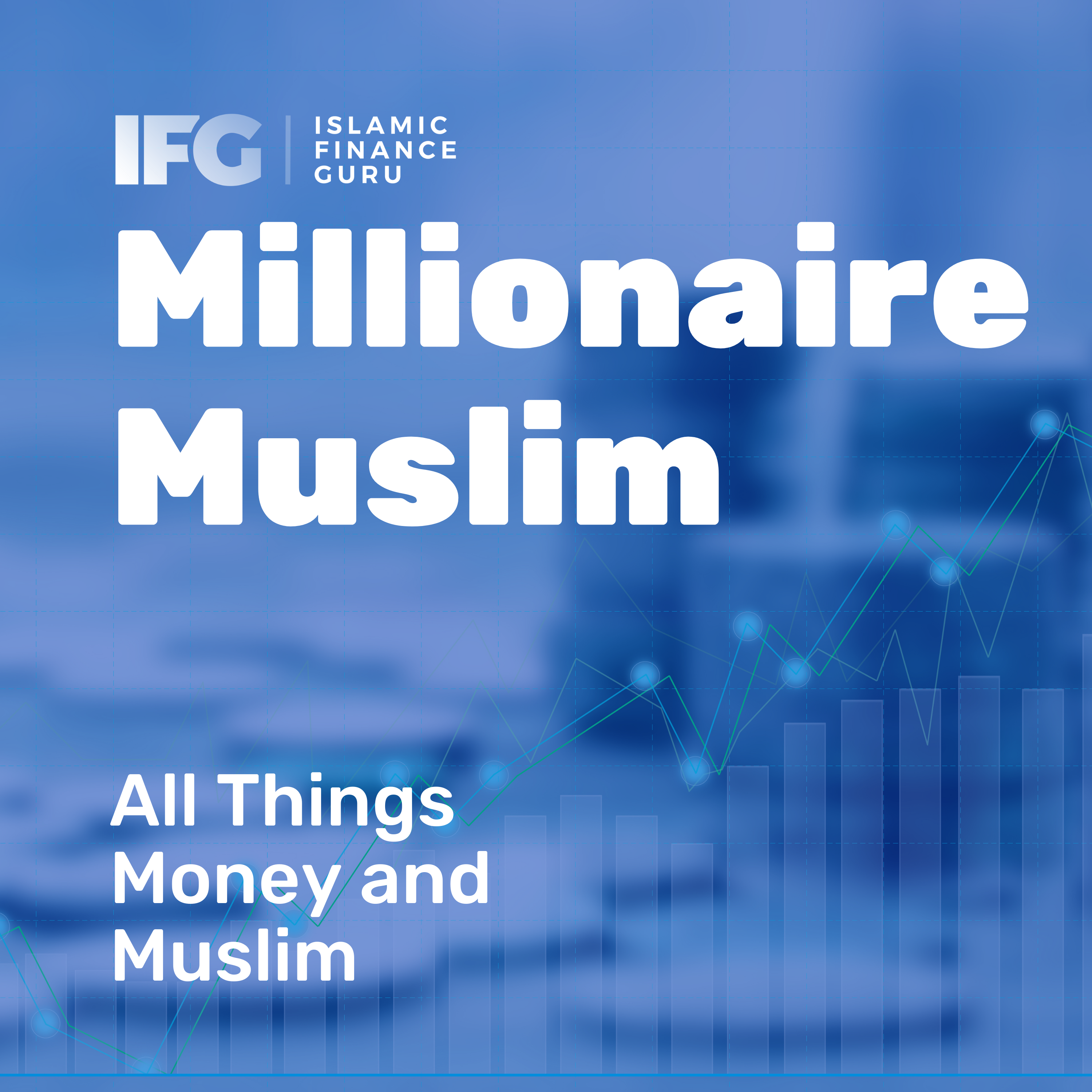
The Wealth Formula: Income x Savings Rate = Wealth
11 September 2023 8 min read

11 min read
Published:
Updated:

Ibrahim Khan
Co-founder
In the modern age of social media and online marketing, most professionals and businesses need to promote themselves and build a brand to further their careers and businesses.
For example, you can’t be a successful lawyer without advertising your services, how good you are at your job, and why clients should trust you.
And you can’t attract patients as a private doctor unless you share reviews of previous patients and your track record and qualifications. And you certainly can’t succeed as a startup offering halal investments and Islamic mortgage comparison unless people know of your existence!
But sometimes this kind of “self-promotion” can sit uneasily with Islamic ethics, which strongly criticises any form of pride and arrogance and celebrates humility. And naturally when a business markets itself it isn’t exactly going to be pointing out their negatives.
So what does the conscientious Muslim professional/company do when marketing themselves then?
In order to answer that question we first need to pin down the following points in light of the Qur’an and hadith:
We’ll explore each of these in turn below, but in a nutshell, my conclusion is that Islam does not forbid you from thoughtful and tasteful marketing that does not denigrate others and ideally adds something independently useful to the world.
The intent should be to communicate what problem your product or service can solve for your target audience – which is an outward-looking and constructive approach – rather than to narcissistically celebrate how great you are.
There are some ground rules that all marketing conducted by a Muslim company should adhere to:
Islam teaches that humility is a good deed and comes in many forms. The Qur’an says
The servants of the Most Merciful are those who walk upon the earth in humility, and when the ignorant address them, they say words of peace. [Qur’an 25:63]
Call upon your Lord with humility and in private. Verily, He does not love transgressors. [Qur’an 7:55]
And do not turn your cheek [in contempt] toward people and do not walk through the earth exultantly. Indeed, Allah does not like everyone self-deluded and boastful. [Qur’an 31:18]
So we get humbleness is a good thing. But what but does this humbleness truly mean?
The following hadith sheds some light:
Shall I not tell you about the companions of Paradise? They are every humble person considered weak, but if they gave an oath by Allah it would be fulfilled. Shall I not tell you about the companions of Hellfire? They are every harsh, haughty, and arrogant person. [Bukhari]
So the opposite of humility is harshness, haughtiness and arrogance. It is a very relational concept (as opposed to just a mental state). Humbleness is to do with how you behave with respect to others.
So humility therefore means that you should be warm and open-hearted towards those whom you do not know, children, and those weaker than you or lower in social rank.
Accordingly, when a man asked the Prophet which acts are the best in Islam, He said, “To feed the food (to the poor), and to extend salam to those whom you know and whom you do not know.” [Bukhari]
Similarly on the day of Badr, the Prophet was sharing his camel with two other men. When it was time for the Prophet to walk, the other men said they would walk and let the Prophet ride. But the Prophet said, “you are not stronger than me and I am not in less need of rewards than you.” [Ahmad]
So in each of these the Prophet showed his humbleness by his behaviour towards others. He didn’t just think it.
Interestingly there do not appear to be many hadith discussing humility in the context of trade despite many of the companions being tradesmen. Instead, the tradition we find focus on the salesman being honest.
The Prophet said, “An honest and trustworthy merchant will be [raised] with the Prophets, the truthful and the martyrs.”[ Tirmidhi]
He also said “The merchants will be raised on the Day of Resurrection as evildoers, apart from those who fear Allaah and are honest.” [Tirmidhi]
So the focus is on the truth of a tradesman’s statement, not the tone or delivery of it.
And truth is not just that which is said, it is also that which is left unsaid or hidden. The Prophet said: “The two parties to a transaction have the option (of cancelling it) until they part. If they are honest and disclose any defects, their transaction will be blessed, but if they lie and conceal defects the blessing will be erased.” [Bukhari]
But one idea in the Islamic concept of humility that is relevant for business is this sense of not thinking you are better than someone or above someone in some way. The Prophet was the perfect example of this.
Anas bin Malik said, “Any of the female slaves of Medina could take hold of the hand of Allah’s Messenger and take him wherever she wished.” [Bukhari]
Ibn Rajab reported that some salaf used to explain that “Humility is that you accept the truth from anyone who brings it, even if they are young…Whoever refuses to accept the truth because he regards himself as too important beside it, or as compared to the person who speaks it to him, then he is arrogantly proud. [Jami’ al-Ulum al-Hikam]
In a similar vein, the Prophet explained that the people of paradise shall “comprise every obscure unimportant humble person”[Bukhari].
While a businessman can accept that they musn’t think they are somehow better than someone else in everyday life, in business this is a little trickier. If you are competing with someone, you naturally believe a customer should use you because you are better than them in some way.
Similarly, when you market your business you want people to believe your business is important, prominent and well-known – not obscure and unimportant.
The solution is found in the second half of that hadith. The Prophet described the people of hell as “every cruel, violent, proud and conceited person”.
A person who is cruel, violent, proud and conceited is unlikely to be an obscure or unimportant individual. But that doesn’t automatically mean every prominent or important person is cruel, violent, proud and conceited. The Prophet is perhaps the best example of that.
So it isn’t a dichotomy of you are either “obscure and unimportant but going to paradise” or “cruel violent, proud and conceited but going to hell”.
But there is still a lesson in the hadith for a business’s marketing messages.
The way one communicates and sells one’s products must not be aggressive and arrogant. However a matter-of-fact and perfectly honest communication of what your product or service is, and how it compares with other options is neither aggressive nor conceited (particularly if you communicate with a firm belief that any success is down to Allah).
A businessman should also remember that intention as opposed to the form a thing have an important role to play when identifying pride in Islam.
When the Prophet ordered people to not let their clothes drag below their ankles, Abu Bakr said to him “O Allah’s Messenger! My Izar slackens on one side (without my intention).” The Prophet said, “You are not among those (who, out of pride) drag their Izars behind them.” [Bukhari]
So some might argue that listing your qualifications on Linkedin are technically boasting, but if you put those qualifications down with the intention of finding a job and advancing your career without any intention of showing off, then that would be acceptable.
In order to properly understand how to situate “pride” and “arrogance” in Islam, it is helpful to look over a number hadith that showcase either the Prophet’s or his companion’s marketing techniques.
The Prophet said: “I have some names: I am Muhammad, I am Ahmad, I am Al-Mahi, the one by whom Allah wipes out disbelief, I am Al-Hasir, the one whom the people are gathered at his feet, and I am Al-‘Aqib, the one after whom there is no Prophet.” [Tirmidhi]
That is an impressive set of accolades but importantly they are all entirely true and communicated primarily for a purpose other than boasting (in this case, education).
Even more explicitly, in the battle of Hunayn, when the Muslims were just beginning to break and retreat, the Prophet stood up and cried out “I am the Prophet, that is no lie. I am the descendant of ‘Abd al-Muttalib” [Bukhari].
This was a rare departure from the Prophet’s usual style of communication and made reference to status and his noble lineage. But it was done not out of pride, but to turn a potential defeat into victory.
The companions of the Prophet also used marketing of various flavours.
Narrated Thabit: that he heard Anas saying, “A woman came to the Prophet offering herself to him in marriage, saying, “Have you got any interest in me (i.e. would you like to marry me?)” Anas’s daughter said, “How shameless that woman was!” On that Anas said, “She is better than you, for she presented herself to Allah’s Messenger (for marriage). [Bukhari]
In the context of marriage in particular, Islam encourages any truthful “marketing” that allows a marriage to come about – because marriage is a very socially valuable institution that is to be facilitated as much as possible.
Being humble also should not preclude one from saying or doing something which shows one’s prowess. In this following hadith Umar clearly shows his approbation had his son chosen to speak up in a gathering of men:
Narrated Ibn `Umar: The Prophet said, “The example of a believer is like a green tree, the leaves of which do not fall.” The people said. “It is such-and-such tree: It is such-and-such tree.” I intended to say that it was the datepalm tree, but I was a young boy and felt shy (to answer). The Prophet said, “It is the date-palm tree.” Ibn `Umar added, ” I told that to `Umar who said, ‘Had you said it, I would have preferred it to such-and such a thing.” [Bukhari]
Another interesting example of self-confidence is that of Hassan bin Thabit, the poet of the Prophet. Consider the following hadith. What Hassan says is exactly the sort of thing that you’d expect to hear from a particularly slick salesman:
Narrated `Aisha: Hassan bin Thabit asked the permission of Allah’s Messenger to lampoon the pagans (in verse). Allah’s Apostle said, “What about my fore-fathers (ancestry)?’ Hassan said (to the Prophet) “I will take you out of them as a hair is taken out of dough.” Narrated Hisham bin `Urwa that his father said, “I called Hassan with bad names in front of `Aisha.” She said, “Don’t call him with bad names because he used to defend Allah’s Messenger (against the pagans). [Bukhari]
Looking into the stories of the Prophets, we come across the story of Joseph.
[Joseph] said, “Appoint me over the storehouses of the land. Indeed, I will be a knowing guardian.” [Qur’an 12:55]
Setting aside the debate around asking for a position of leadership, if we consider the statement from a marketing perspective, it is a clear marketing statement pointing to his strengths that make him suitable for the role. But there is no exaggeration. It is a focused, factual statement that has the effect it is meant to.
Indeed, my view is that so often the extravagant marketing that makes one think “oh this guy has gone too far” could have avoided that by just saying about a third of what they did say. In that spirit, the Prophet said: “Indeed Allah detests the excessive among men, who slaps his tongue around like the cow slaps his tongue.” [Tirmidhi]
So we can conclude from the above examples that marketing in its many forms was engaged at various points in by the Prophet, his companions and other Prophets. Clearly there is a way to market in a way that Islamic ethics allow. Let’s turn to identifying what characterises such marketing.
The overwhelming criteria is to tell the truth.
After that its fairly subjective but these would be my thoughts in light of general Islamic ethics:
Consider Nike ads. Of course they are an established business (and I’m not making a comment on their overall ethics), but if you see their marketing, its less about the quality of their product and more about the narrative and brand. When you think sports products you think Nike. When you think quality sports products, you think Nike.
Ultimately, as a rule of thumb, I think it boils down to being in tune with your ethical side and being classy.
It is possible to market effectively and in line with Islamic ethics. Islamic teachings around humility and pride are either not applicable (as they are talking about an internal feeling or are a teaching only relevant for the individual domain rather than business domain) or applicable in a way that a business can still effectively craft a marketing strategy around it.
That being said, there are some ground rules that a Muslim business should adhere to, chief among them to be honest and not use unislamic imagery, concepts or ideas. Beyond that, marketing is such a subjective field that it is best to just have rules of thumb when approaching any marketing. For me those two rules of thumb are: (1) is this ethical? Is my conscience happy with this? And (2) is this classy and not boorish/arrogant?
As ever, we write these whitepapers in the spirit of starting a discussion. I would love to hear your thoughts and contributions in the comments below.

11 September 2023 8 min read

25 April 2023 15 min read

23 February 2023 9 min read